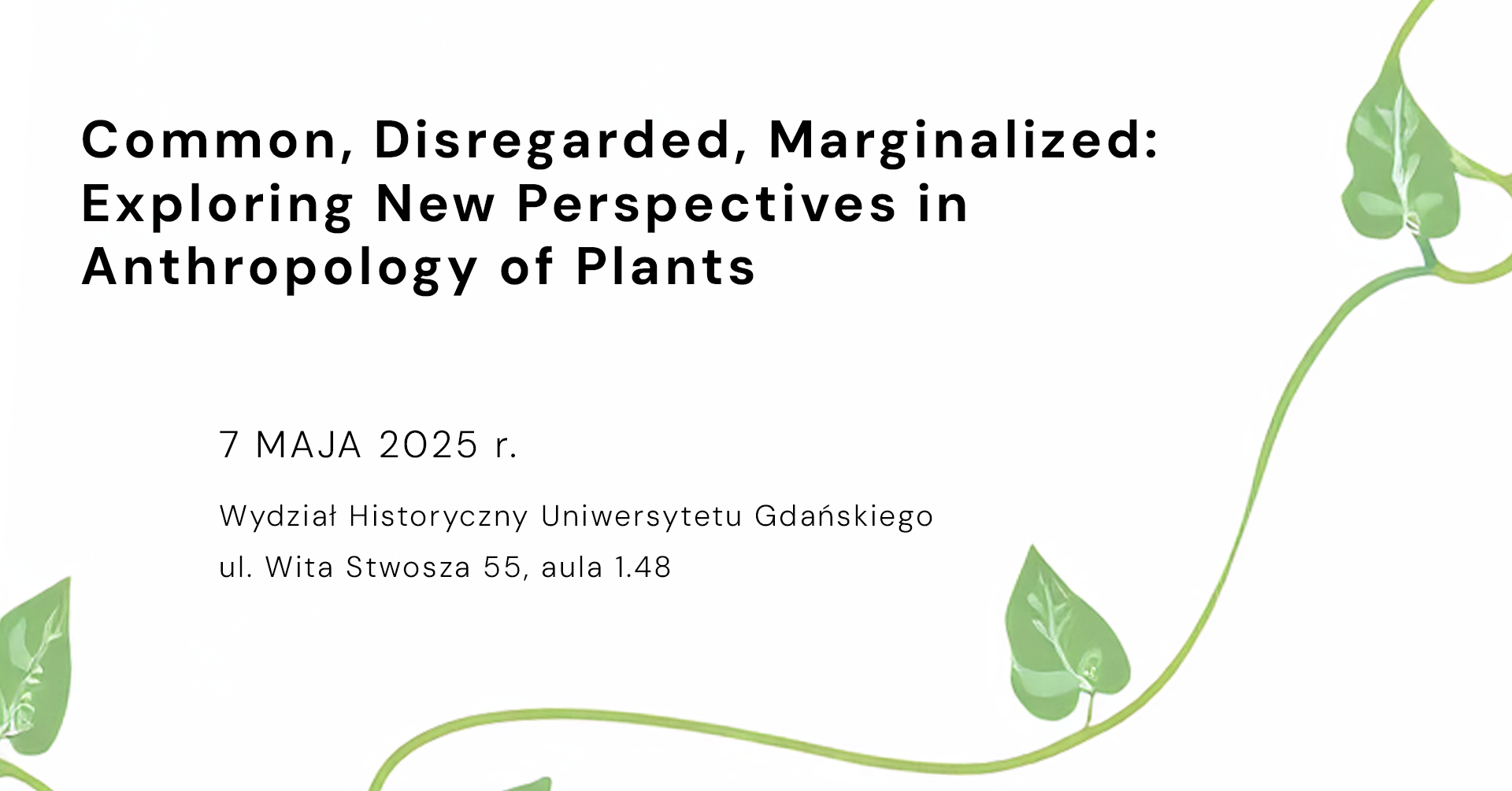
Due to the strong interest in the conference, we have created the possibility to participate online.
Please follow THIS LINK to join the event.
PROGRAMME
9:00 – 9:15 Registration
9:15 – 9:30 Opening
9:30 – 10:40
Carola Von Der Dick (Online) – Critical Diffraction of Plants in the City
Edda Starck – In Death I Sweetly Sing: The Plantiness of Music
Lisanna Unt – How do Thought Frameworks Influence a Person Relationship With Nature? Modernized Society, Cut Flowers and Multispecies Anthropology
10:40 – 11:00 Coffee break
11:00 – 12:30
Kacper Świerk – The tsíreri song: Euterpe precatoria palm in traditions of the Matsigenka people (lowland Peru)
Aleksandra Iczetkin – Plants in the Amazon as entities ontologically unstable: negotiating eanings and relationships
Anna Przytomska – Coca leaves as a borrowed body: shared subjectivity and fluid ontology in the Andes
Rui M. Sa (Online) – Invasive Plant Species and Wildfires: Towards an Ethnography of Eco-anxiety In Portugal)
12:30 – 14:00 Lunch break
14:00 – 15:10
Małgorzata Kowalska – Stonewort meadows
Hilal Alkan (Online) – Entangled movements: Migrant plants, migrant people in contemporary Germany
Anna Zadrożna – Rethinking possibilities for more-than-human futures with plants
15:10 – 15:30 – Coffee break
15:30 – 17:00
KEYNOTE
Eben Kirksey – Symbiogenesis with Plants: From Hybrid Agency to Decentered Multispecies Design
KEYNOTE: Symbiogenesis with Plants. From Hybrid Agency to Decentered Multispecies Design
by Eben Kirksey, University of Oxford
Abstract:
Plants are masters of symbiogenesis—able to entangle strangers in new shared modes of co-existence. Desires of people are shaped by plants. The beauty of flowers, the sweet nutrients of fruits, and the mind-bending properties of psychoactive compounds influence our dreams, everyday experiences of pleasure, and joy. Like people, plants can also be selfish—resisting certain kinds of symbiotic relations and unwanted associations with thorns, toxins, and other clever tricks. This talk will survey a range of ideas from the field of multispecies studies that have been mobilized in the study of plant-human symbiogenesis. Classic ideas from Actor Network Theory will be redeployed to get beyond human exceptionalism. I will illustrate how plants do the work of interessement, enlisting other beings in networks, entangled relations, and emergent ecological communities. Departing from principles of human-centered-design, I will also describe practices from art worlds and conservation biology that aim to generate convivial communities with plants as companion species.
Eben Kirksey is Professor of Anthropology at the University of Oxford. He is perhaps best known for his work in multispecies ethnography—a field that situates contemporary scholarship on animals, microbes, plants, and fungi within deeply rooted traditions of environmental anthropology, continental philosophy, and the sociology of science. Duke University Press published his first two books–Freedom in Entangled Worlds (2012) and Emergent Ecologies (2015)–plus The Multispecies Salon (2014), a curated collection of artwork and essays. Questions related to science and social justice animate his most recent book, The Mutant Project (2020), which offers an insiders account of the laboratory in China that created the world’s first children whose genes were edited with CRISPR-Cas9. His most recent edited collection, The Promise of Multispecies Justice holds open the possibility of flourishing in multispecies worlds, present and to come.
The full programme and the book of abstracts can be downloaded from THIS LINK